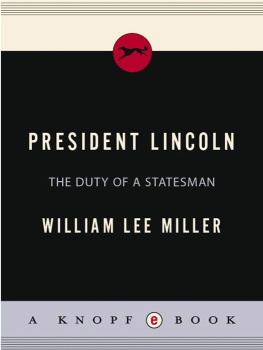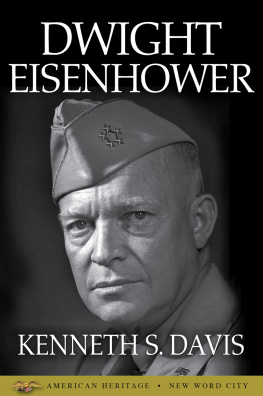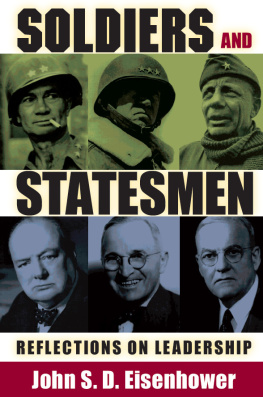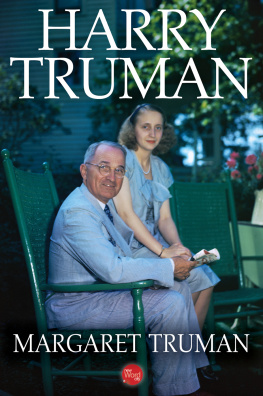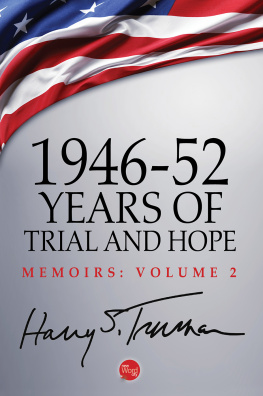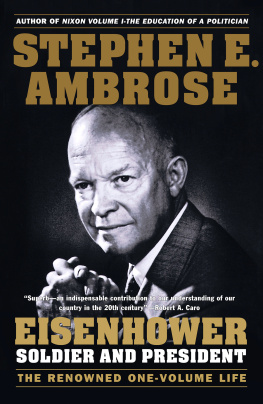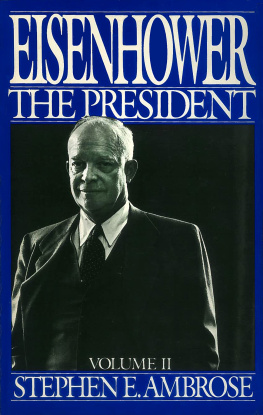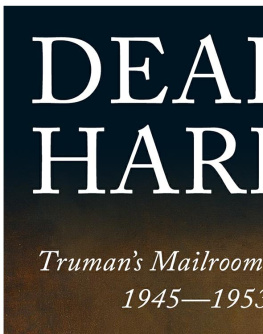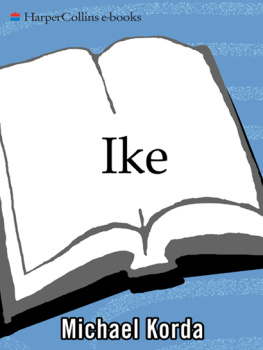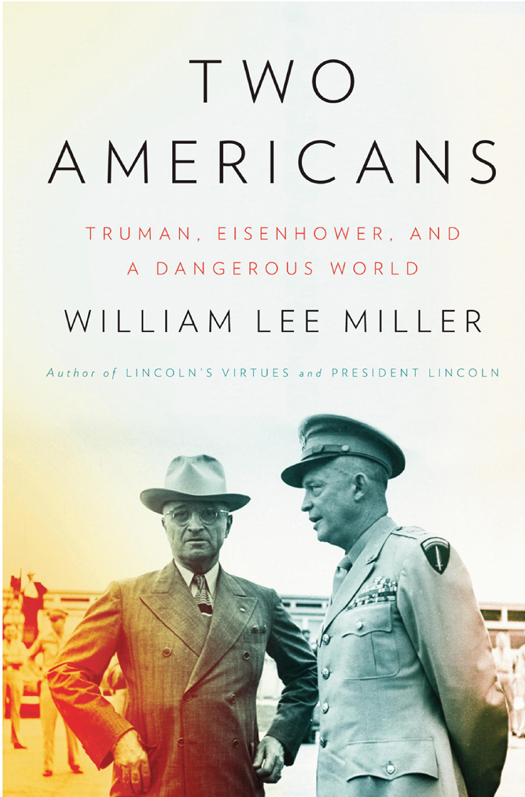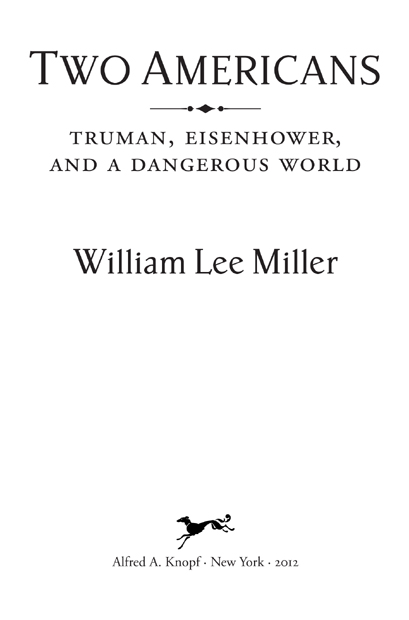THIS IS A BORZOI BOOK
PUBLISHED BY ALFRED A. KNOPF
Copyright 2012 by William Lee Miller
All rights reserved. Published in the United States by Alfred A. Knopf, a division of Random House, Inc., New York, and in Canada by Random House of Canada Limited, Toronto.
www.aaknopf.com
Knopf, Borzoi Books, and the colophon are registered trademarks of Random House, Inc.
Library of Congress Cataloging-in-Publication Data
Miller, William Lee.
Two Americans : Truman, Eisenhower, and a dangerous world / William Lee Miller.1st ed.
p. cm.
Borzoi book.
eISBN: 978-0-307-95754-2
1. PresidentsUnited StatesBiography. 2. Political cultureUnited StatesHistory20th century. 3. Political leadershipUnited StatesCase studies. 4. Truman, Harry S., 18841972. 5. Eisenhower, Dwight D. (Dwight David), 18901969. 6. United StatesPolitics and government19451953. 7. United StatesPolitics and government19531961. I. Title.
E747.M63 2012
973.099dc23
[B] 2011033891
Jacket image: General Dwight D. Eisenhower talking with President Harry S Truman, June 1, 1945. Photo by Marie Hansen/Time-Life Pictures/Getty Images
Jacket design by Darren Haggar
v3.1
To the memory of
Tom Appleby
and of
Tom Sorensen,
political companions
CONTENTS
CHAPTER ONE
Boys Life
I
GEORGE KENNAN , the diplomat and thinker whose understanding of world politics was of importance in shaping Americas conduct during the Cold War, tells in his Memoirs: 19501963 about a return, after many years spent representing the United States abroad, to the American Middle West, from which he had originally come. Superficially, his encounter was not edifying. Walking around Chicagoto which he had gone to give a lecturehe experienced a series of depressing sights and encounters. Nevertheless, he wrote:
I knew myself to be back in the part of the world to which I truly belongeda part of the world which, in memory, I loved as one can only love the place in which one grew up. I believed then deeply in the Middle West and still doin its essential decency, its moral earnestness, its latent emotional freshness. I viewed it, and view it now, as the heart of the moral strength of the United States. This was precisely why I was so sensitive to its imperfections.
Latent emotional freshness is a quality not many, perhaps, would think to ascribe to the American Middle West. With further visits, Kennan came to an unlikely metaphor: Increasingly, under the impression of this and other visits at mid-century, I came to see this native region as a great slatternly mother, sterile when left to herself yet immensely fruitful and creative when touched by anything outside herself. And then he saw this as a condition common to many countries: But was this not, I often asked myself, the character and function of all these regions, everywhere across the world, that would respond to the French meaning of the word province?
Kennan and his ideas would have their strongest effect (although not always the one he wanted them to have) in the presidencies of two men from the U.S. provincesHarry S Truman and Dwight David Eisenhower. This book is a brief narrative of the lives and careers of those two men. Part of the reason I chose to interweave their stories is to compare and contrast these men, in their relationships to the great issues with which they dealt and to each other (they came to have a considerable antagonism, as we shall see; their interaction is an interesting part of the story). Another reason for telling their story jointly is that, together, their careers reveal central aspects of American culture at crucial moments in history. Both were president at times that required important national decisions.
During the fifteen and three-fourths years of the presidencies of these two Middle Americans, bracketed by two Harvard men, the 175-year-old United States underwent a major change in the role that it would thenceforth play in the drama of world affairs. The nation rejoined Europe, entered its first peacetime alliance since the time of the Founders, undertook its first permanent global commitments, and coped for the first time in human history with a man-made destructive power that could destroy civilization. The history of the decades to followfour decades of Cold War, with the bomb looming over themwas much affected by what happened in those Truman and Eisenhower years.
II
FIRST , as to Dwight Eisenhower: You could not ask for a purer sample of the American Middle West than the Eisenhower family in the small town of Abilene in the state of Kansasvery near the geographical center of the country and near the center of the national culture, as well.
David Dwight Eisenhower (his name in that order originally) was the third of seven boyssix of whom lived beyond infancyborn to David Eisenhower and Ida Elizabeth Stover, an unpretentious and impecunious couple of German Mennonite background in the town of Abilene. After the first two boys were born, their parents wished for a girl, but (like Abraham Lincoln and his wife) they kept having boys. Although farming had been the primary occupation of his forebears, and although the Reverend Jacob Eisenhower, Dwights impressive multitasking grandfather, was able to give each of his sons 160 acres of Kansas farmland, Dwights father, David, did not want to be a farmer. He got a college degree from a marginal institution called Lane University in Lecompton, Kansas, but had trouble making a living. He met and married Ida Stover at that university. He tried with a partner named Milton Good to make a living in a dry goods store, but that effort failed; in family lore and some biographies, the failure is blamed on Goods having absconded with the stores earnings, but a later biographer, who gave the story a more careful look, found that David Eisenhower just was not a good salesman. After his failure with the store, he went at first by himself to Denison, Texas, where there was a laborers job on the Missouri-Kansas-Texas, or Katy, Railroad. His wife and family followed, and the next boy was born there. This was David Dwight, who, when his first and middle names were reversed, became Dwight. When he became a world figure, some in Texas tried to claim him, but he was in Texas only as an infant; he always made clear that Abilene, Kansas, was his hometown. After the David Eisenhower family had been in Denison for about three years, the River Brethren back in Abilene offered David Eisenhower a job at the Belle Spring Creamery, which the Brethren operated on the outskirts of Abilene, and the family returned there for all of Dwights youth. David, the more somber parent, worked from six to six as a mechanic at the creamery throughout Dwights boyhood. Ida was an able mother to the bourgeoning crew of boys, much praised by her most famous son, including one full chapter devoted to her in his book of reminiscences, At Ease.
Abilene was a town of some four thousand residents and had once briefly been the center of some lively history. Not long after the Civil War, the railroad reached the town, and promptly there was a stockyard at the northern end of Chisholm Trail, on which cattle were brought from Texas to the market. With the cattle came rough-riding cowboys. Abilene suddenly became notorious as the center of saloons, gambling houses, bawdy houses, and daily shootings. Among the town marshals who tried to bring law and order was a figure of legend, Wild Bill Hickock, who would be the towns most famous resident until another son of Abilene landed in England in June 1942.


